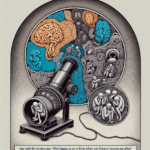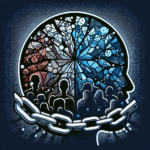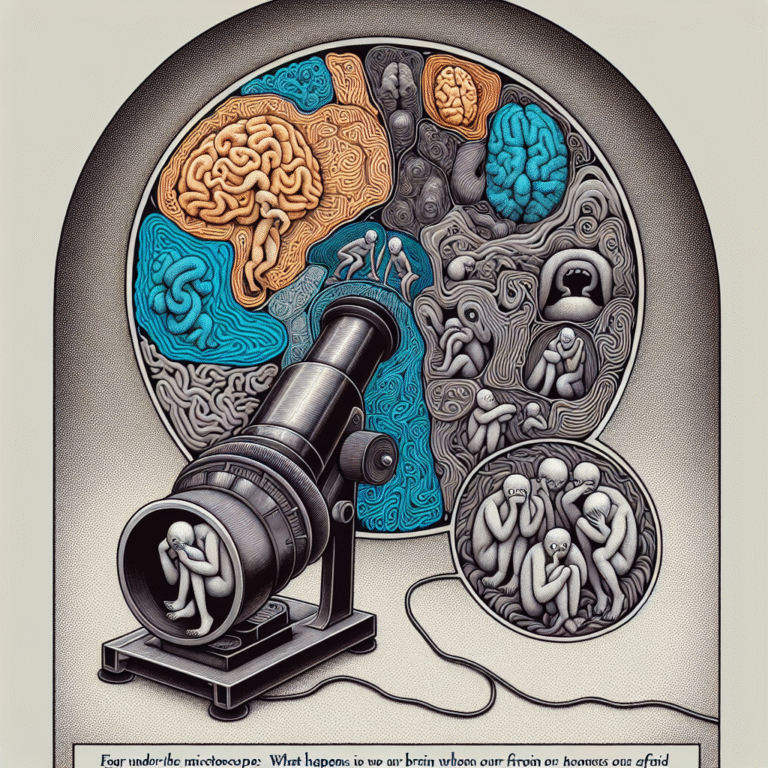
Beyond the Diagnosis: Understanding the Emotional Impact on Parents of Disabled Kids
Introduction
The moment a child is diagnosed with a disability can feel like an emotional earthquake, shaking the very foundations of a family’s hopes and dreams. For many parents, the journey into special needs parenting can evoke a whirlwind of feelings—anger, grief, confusion, and, ultimately, an insatiable drive to understand and advocate for their child. This article, Beyond the Diagnosis: Understanding the Emotional Impact on Parents of Disabled Kids, aims to shed light on the multifaceted emotional journey parents traverse after diagnosis, exploring not just the challenges but the pathways to resilience and understanding.
The Emotional Journey Begins
Initial Reactions: Shock and Grief
When parents first hear the news of their child’s disability, the initial reaction often mirrors that of grieving a loss. Many might find themselves engulfed in a paralyzing shock, feeling an overwhelming sense of disbelief. This reaction is quite common; according to research published in the Journal of Developmental & Behavioral Pediatrics, as many as 75% of parents reported feelings of shock in the initial aftermath of diagnosis.
Case Study: Sarah and Tom
Sarah and Tom, parents of a nine-month-old diagnosed with cerebral palsy, illustrate this experience perfectly. At the time of diagnosis, they reported feeling as if they were losing the child they had envisioned, describing their initial days in the hospital as a “fog of emotions.” Their journey exemplifies how early grief can manifest, highlighting the need for support systems during such tumultuous times.
The Loneliness of the Journey
Parents of children with disabilities often feel isolated, struggling to communicate their experiences to friends and family who may not fully understand their circumstances. This sense of loneliness can amplify emotional strain, making it vital to seek communities or support networks that provide validation and shared experiences.
Navigating Relationships
The emotional toll of a child’s disability can extend into a parent’s relationship with their partner. Statistics indicate that couples with disabled children often experience increased stress, leading to higher divorce rates compared to families with typically developing children. Open communication, mutual support, and shared goals are crucial for maintaining a strong partnership amidst the emotional upheaval.
The Search for Answers
Once the initial shock subsides, many parents enter a phase of fierce advocacy, seeking resources, therapies, and educational options to best support their child’s needs. This research phase can become overwhelming; parents might feel lost in a sea of conflicting information. The quest for answers serves as both a coping mechanism and a source of additional stress.
The Rollercoaster of Emotions
Guilt and Accountability
As parents dive deeper into advocacy and care, feelings of guilt can emerge—“Am I doing enough?” “Is this my fault?” The emotional weight of these questions often weighs heavily on parents, who may scrutinize every decision they make regarding their child’s treatment or education.
Case Study: Emily’s Story
Emily’s account of balancing her full-time job with therapy appointments for her autistic son illustrates this inner turmoil. Despite her dedication, she often felt inadequate, believing she wasn’t doing everything possible for her child. This emotional conflict is common and emphasizes the need for self-compassion and understanding that it’s okay to seek help.
Embracing Joyfulness Amid Challenges
Despite the emotional battles, it’s crucial for parents to relish moments of joy and celebrate their child’s achievements, no matter how small. Practicing mindfulness and gratitude can shift focus from the challenges to the beautiful moments, fostering a more balanced emotional outlook.
Table: Emotional Phases in Parenting a Disabled Child
| Phase | Description |
|---|---|
| Shock and Grief | Initial feelings of disbelief and mourning the future they envisioned. |
| Loneliness | Isolation from communities, friends, and family who may not understand their journey. |
| Advocacy and Research | Engaging in deep research to find resources and support for their child. |
| Guilt and Accountability | Feeling responsible for their child’s development and care, often leading to self-blame. |
| Celebration of Achievements | Acknowledging and celebrating small victories helps foster joy and positivity. |
Building Resilience
Support Systems: A Lifeline
A strong support network is fundamental for parents navigating the complexities of raising a child with a disability. Connecting with other parents who share similar experiences can provide emotional outlets and practical solutions. Support groups, both in-person and online, offer venues for sharing resources and coping strategies.
Professional Guidance
Engaging with professionals—therapists, psychologists, and educators—can also provide parents with tools to manage their emotional well-being. Family therapy, for example, has shown to significantly reduce feelings of isolation and improve communication among family members.
Mindfulness and Self-Care
In the chaos of caring for a child with a disability, parents often neglect their self-care. Mindfulness practices, such as meditation and yoga, can nurture emotional resilience. By incorporating self-care strategies into their routines, parents can quell anxiety and promote mental well-being.
The Transformation: Finding Strength
New Perspectives
As time progresses, many parents undergo remarkable transformations, often citing newfound strengths and perspectives. The journey through adversity can foster empathy, deeper connections, and a heightened sense of purpose. Challenges begin to reshape their outlook, allowing for growth and resilience in ways they never thought possible.
Case Study: John and Lisa
John and Lisa, parents of a child with Down syndrome, describe their evolution from distress to empowerment. Initially paralyzed by their child’s diagnosis, they eventually became passionate advocates for disability rights. Their story exemplifies the capacity for transformation and the flourishing sense of community that often follows.
Advocacy and Community Engagement
Many parents, after navigating their emotional journeys, find solace in advocacy work. Becoming active in their child’s school, educating others, or participating in local disability rights organizations can empower parents, offering a sense of control and purpose amid the unpredictable nature of parenting a disabled child.
Conclusion
The emotional impact on parents of disabled kids is profound and multifaceted. From navigating feelings of shock and grief to discovering newfound strengths and joys, the journey is complex but incredibly important. By understanding the various phases of this emotional landscape, we can provide essential support, connection, and hope for families.
In navigating this journey, remember to extend kindness to yourself. Seeking help, relying on supportive networks, and celebrating achievements can aid in transitioning from merely surviving to truly thriving. The path of Beyond the Diagnosis: Understanding the Emotional Impact on Parents of Disabled Kids reveals just how resilient and remarkable the journey can be—both for parents and their beloved children.
FAQs
1. How can I cope with feelings of guilt as a parent of a disabled child?
It’s essential to remember that no one can do it all. Seeking support from others in similar situations, including therapists and support groups, can help ease these feelings. Practicing self-compassion and focusing on your child’s achievements can also shift your perspective.
2. What type of support networks are available for parents of disabled children?
Support networks can include local or online community groups, such as those affiliated with hospitals, schools, or disability organizations. These groups provide a platform for sharing experiences and resources.
3. How can mindfulness practices help in this situation?
Mindfulness practices like meditation and yoga can help reduce anxiety and promote emotional well-being. They encourage a focus on the present moment, allowing parents to manage stress more effectively.
4. Is professional therapy beneficial for parents of disabled children?
Yes, professional guidance can be invaluable. Family therapy can improve communication and understanding among members, while individual therapy can provide parents with coping strategies and emotional support.
5. How can I celebrate my child’s achievements, no matter how small?
Recognizing even the smallest achievements creates a positive environment for both you and your child. Keep a journal of milestones, create a celebration routine, or involve family and friends in acknowledging these victories.















